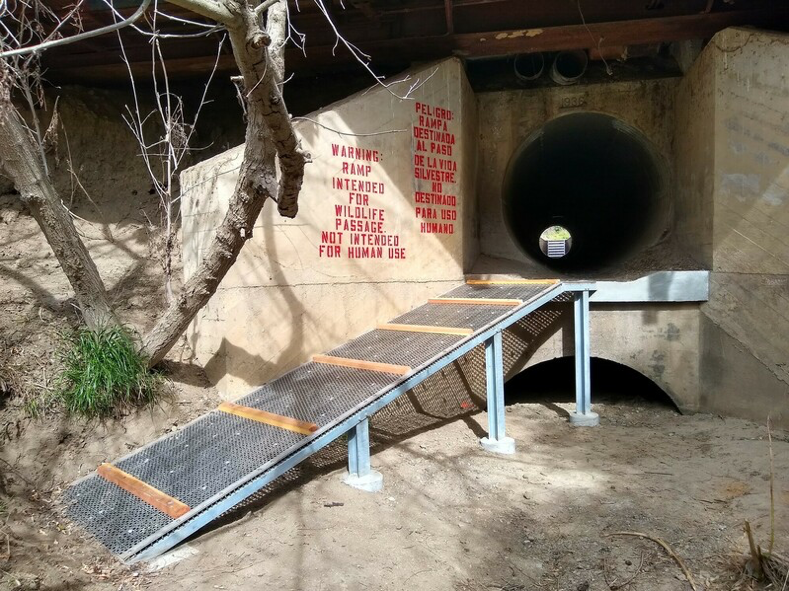California Senate Passes Safe Roads Bill, Putting Statewide Wildlife Connectivity Within Reach
SACRAMENTO, Calif.— The California Senate passed the Safe Roads and Wildlife Protection Act on Monday in a 35-0 vote, paving the way for more wildlife crossings across the state’s roadway system. Assembly Bill 2344 now awaits approval from the governor after a concurrence vote in the Assembly, which it passed in May.
A culvert under Route 118 in Southern California has been retrofitted for wildlife use. The state Legislature passed A.B. 2344, which would pave for the way for more wildlife crossings across California. Photo: National Park Service. Image available for media use.
“California lawmakers agree that it’s unacceptable for animals to be slaughtered on highways due to a lack of wildlife crossings,” said J.P. Rose, policy director at the Center for Biological Diversity’s Urban Wildlands program. “Wildlife crossings work, and mountain lions, desert tortoises and kit foxes deserve safe passage over the barriers we’ve created.”
A.B. 2344 would require Caltrans to identify barriers to wildlife movement and prioritize crossings when designing new roads or making road improvements. The proposed legislation prioritizes crossing projects, which can be overpasses, underpasses, culverts and other infrastructure improvements, to prevent deadly wildlife-vehicle collisions.
According to the UC Davis Road Ecology Center, there were more than 44,000 wildlife-vehicle collisions reported in California from 2016 to 2020. These crashes resulted in injuries and deaths to drivers and wildlife and caused at least $1 billion in damages.
“Bold state action to reduce wildlife-vehicle collisions and improve wildlife’s ability to move throughout the landscape is long overdue,” said Mari Galloway, California program manager at Wildlands Network. “We applaud the Legislature and wide array of stakeholders for supporting ambitious policy that enhances healthy ecosystems and public safety.”
The bill is sponsored by the Center and the Wildlands Network.
###
About
Since 1991, Wildlands Network has been committed to reconnecting, restoring and rewilding North America for the benefit of all species. Our work is grounded in science, driven by fieldwork and furthered through strategic policy and partnerships.
The Center for Biological Diversity is a national, nonprofit conservation organization with more than 1.7 million members and online activists dedicated to the protection of endangered species and wild places.
Contact
Mari Galloway, Wildlands Network, (209) 373-9973, mari@wildlandsnetwork.org
J.P. Rose, Center for Biological Diversity, (408) 497-7675, jrose@biologicaldiversity.org


